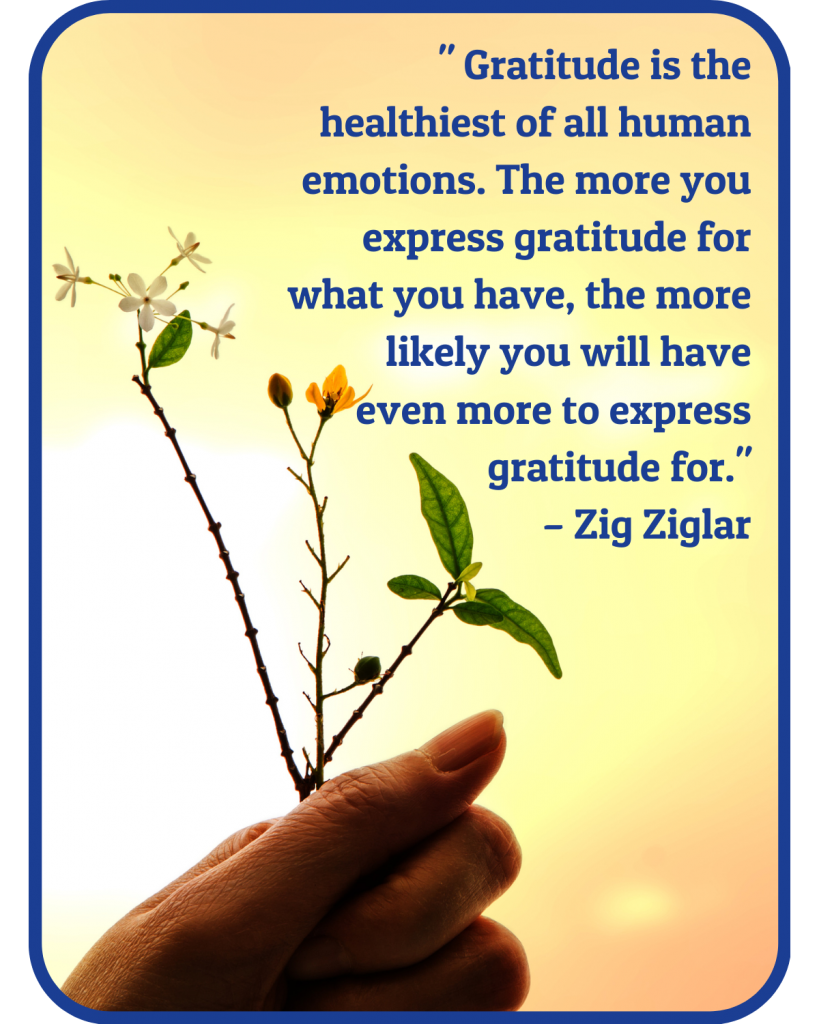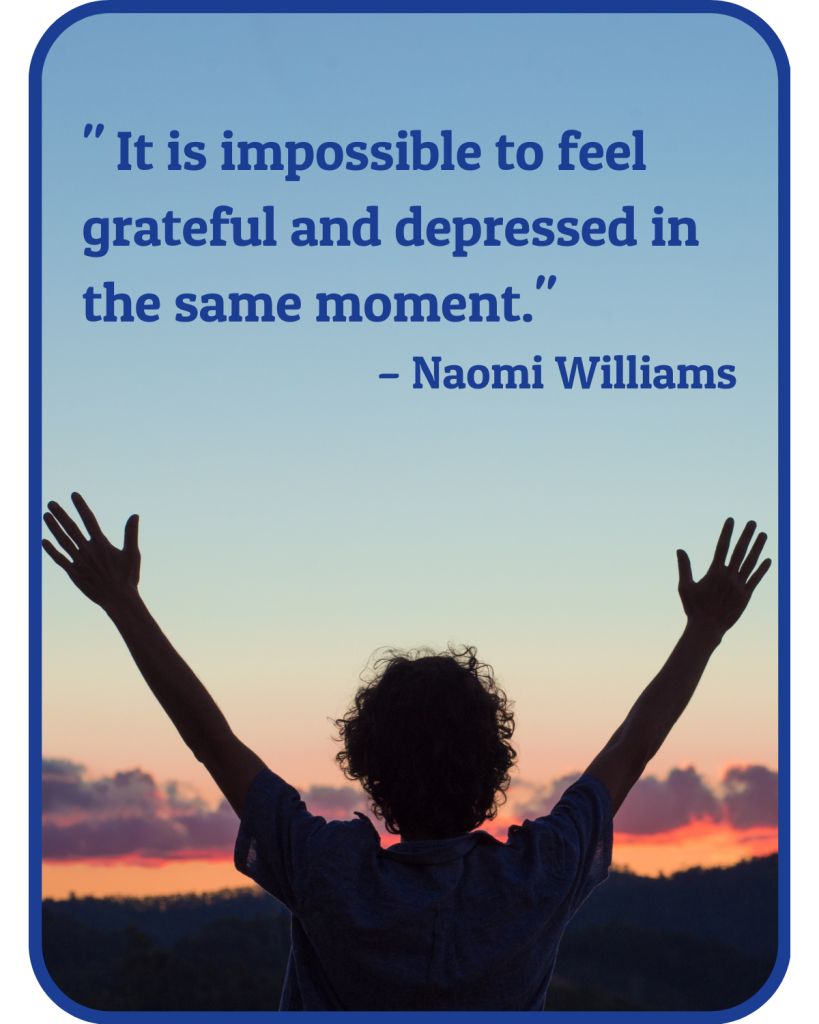Unlocking the Healing Power of Gratitude for Seniors and Caregivers

Gratitude is a powerful force that transcends age, and its healing properties can significantly impact the well-being of older adults and caregivers. It’s a profound acknowledgment of the goodness in life, whether it’s tangible or intangible. This appreciation often extends beyond the self, connecting individuals to something larger than themselves, be it nature, other people, or a higher power.
Gratitude’s potential to heal and enhance physical health has garnered attention in recent studies, particularly concerning older adults. Gratitude practices for older adults and caregivers have shown remarkable results, including increased happiness, improved relationships, reduced depression, and even alleviating pain.
Harvard Medical School and the Greater Good Science Center at UC Berkeley have drawn connections between gratitude and health. The research suggests that individuals of all ages and backgrounds who cultivate gratitude tend to report fewer health complaints, such as headaches, gastrointestinal issues, high blood pressure, respiratory infections, sleep disturbances, and colds. In a specific study, regular gratitude practice was associated with reduced cortisol production, leading to lower blood pressure and significantly lower average heart rates. For seniors, embracing a gratitude routine could help mitigate stress related to aging, fostering a more relaxed and content demeanor.
Gratitude serves as a reminder of life’s blessings and offers solace amid daily challenges. Here are some inspiring ideas for incorporating gratitude practices into daily life for older adults and their caregivers.
- Keep a Gratitude Journal – Write down 3–5 things each day that are blessings to you. By keeping a journal, you can easily see the positives in your days and ensure those good things continue to happen. If you’re helping a parent or loved one who finds writing difficult, consider encouraging them to record a short video each day about what they are grateful for. You can watch them together, which will remind them of their positives, as well as spark conversation.
- Write a Thank You Note – This practice helps both the giver and the receiver. Occasionally, write one to yourself. As a caretaker, you deserve gratitude. Perhaps your loved one cannot thank you themselves, but that does not mean that the intention isn’t there and that you can’t thank yourself on their behalf.
- Thank Someone Mentally – Often, just thinking in a grateful way about someone can soften a relationship and bring healing to your own thoughts.
- Pray – While prayer may not be for everyone, it is a specific way for believers to express their gratitude to a higher power. Praying with your loved one can be a profound connection.
- Use Gratitude Cues – Keep photos out that remind you and your loved one of things that make them happy. Gratitude quotes are also good for reminding everyone to stay positive.
- Make a Gratitude Jar – As people come up with something to feel grateful for, they write it down and put the paper in the jar (with or without their name). During family meals or together time, pull notes from the jar to read aloud. This is a beneficial activity if your older family members have dementia, as they might not be able to participate in writing the grateful notes but can benefit from hearing them read aloud.
In any of these ideas for expressing gratitude, the goal is to make it a regular part of every day – something that comes naturally, even when times are hard. It’s a habit that can switch the brain from saying, “Everything is horrible,” to “I’m grateful for this specific thing in my life when other things are going wrong.” Source: Harvard Medical School and Mayo Clinic
By incorporating gratitude as a regular practice into your daily life, you can make it a natural habit that gradually transforms your mindset. It helps you shift from a perspective where everything might seem challenging or even negative to one where you’re grateful for specific aspects of your life, no matter the circumstances. This shift in thinking is a powerful tool for enhancing your mental and physical well-being.
The practice of gratitude can take different forms, varying in depth and significance. Some people use gratitude as a temporary escape into virtue. In contrast, others cultivate it as a constant companion, seeking to give back to the world. Gratitude’s power lies not only in making you content but also in helping you find meaning even in adversity.
Gratitude in Action Items
- Start the Day with Gratitude: When you wake up each morning, think of one thing or person you’re grateful for and share that feeling with someone else.
- Mindful Moments: Dedicate a few minutes each day to close your eyes, breathe slowly, and focus your mind on positive thoughts.
- Find Gratitude in the Ordinary: When you have medical appointments, look for one positive aspect of the experience. It can be as simple as appreciating a warm smile from the receptionist. Source: Mayo Clinic
Gratitude is a practice that transcends age, bringing immense benefits to both older adults and caregivers. By fostering gratitude, you can help improve mental and physical health and create a more positive and fulfilling caregiving experience.

Caregiver Tip: Embracing a gratitude practice can enhance neural connections, boost cognitive function, and foster emotional balance. Recent research in 2022 underlines the significance of gratitude in safeguarding cognitive health among older adults. The study revealed that seniors with higher levels of gratitude not only exhibited improved memory and cognitive abilities but were also less likely to experience isolation and depression, effectively reducing the risk factors linked to dementia.


